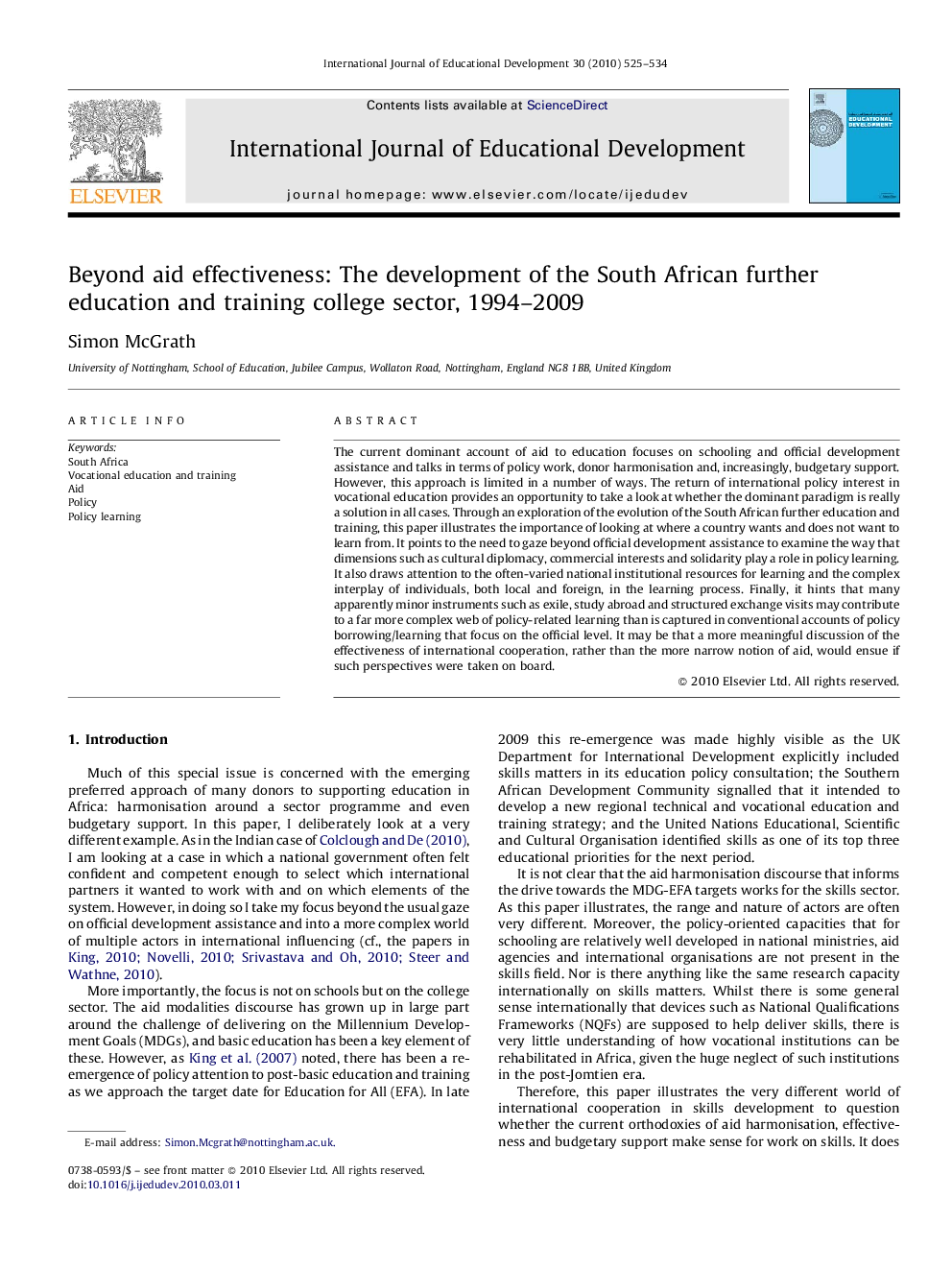| کد مقاله | کد نشریه | سال انتشار | مقاله انگلیسی | نسخه تمام متن |
|---|---|---|---|---|
| 356396 | 1435168 | 2010 | 10 صفحه PDF | دانلود رایگان |

The current dominant account of aid to education focuses on schooling and official development assistance and talks in terms of policy work, donor harmonisation and, increasingly, budgetary support. However, this approach is limited in a number of ways. The return of international policy interest in vocational education provides an opportunity to take a look at whether the dominant paradigm is really a solution in all cases. Through an exploration of the evolution of the South African further education and training, this paper illustrates the importance of looking at where a country wants and does not want to learn from. It points to the need to gaze beyond official development assistance to examine the way that dimensions such as cultural diplomacy, commercial interests and solidarity play a role in policy learning. It also draws attention to the often-varied national institutional resources for learning and the complex interplay of individuals, both local and foreign, in the learning process. Finally, it hints that many apparently minor instruments such as exile, study abroad and structured exchange visits may contribute to a far more complex web of policy-related learning than is captured in conventional accounts of policy borrowing/learning that focus on the official level. It may be that a more meaningful discussion of the effectiveness of international cooperation, rather than the more narrow notion of aid, would ensue if such perspectives were taken on board.
Journal: International Journal of Educational Development - Volume 30, Issue 5, September 2010, Pages 525–534